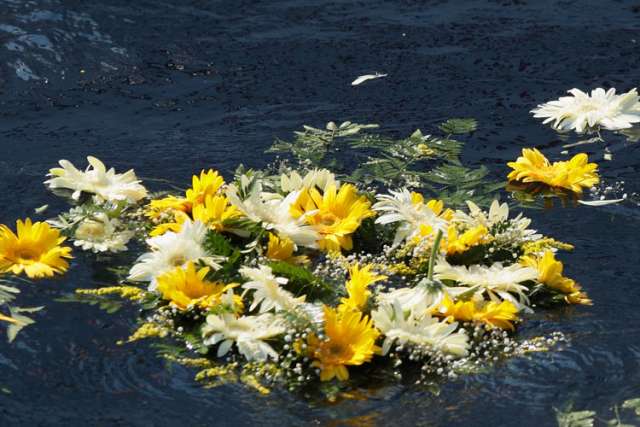"The problem of immigration is getting worse and other tragedies have unfortunately followed closely behind at a relentless pace," he said in a written message.
"It's difficult for our hearts to accept the death of these brothers and sisters, who brave exhausting journeys in order to escape ordeals, poverty, wars and conflicts often linked to international policies," the pope said.
The pope's written message marked the first anniversary of his visit to Italy's southernmost island, Lampedusa. The Vatican released the message, which was addressed to Archbishop Francesco Montenegro of Agrigento, July 5.
Pope Francis visited the island July 8, 2013, after seeing newspaper headlines describing the drowning of immigrants at sea. The island is often the first port of entry for migrants trying to reach Europe from Africa and the United Nations estimates that the dangerous sea crossings have cost the lives of more than 20,000 migrants in the past 25 years.
During his visit, the pope had called such tragedies "a disgrace" and he tossed a wreath of white and yellow flowers into the Mediterranean Sea in memory of those who perished while trying to build a new life in Europe.
In his anniversary message, the pope said he felt spiritually present at the seaside once more "to cry with all those who are hurting and to toss flowers of prayers in suffrage for the women, men and children who are victims of a tragedy that seems endless."
The tragedy "demands to be confronted not with the logic of indifference, but with the logic of hospitality and community, with the aim of safeguarding and promoting the dignity and centrality of every human being," he said in his message.
He urged all Christians and people of goodwill to continue to help those in need, "taking them by the hand, without making calculations, without fear, with tenderness and understanding."
He also expressed hopes all the different agencies and institutions involved, "especially at the European level, may be more courageous and generous in coming to the aid of refugees."
Meanwhile, the Vatican observer to U.N. agencies in Geneva said protecting the freedom, dignity and safety of refugees "should take precedence over disproportionate concerns about state security."
Addressing a session of the United Nations High Commissioner for Refugees July 1, Archbishop Silvano Tomasi said assistance and hospitality should not "be limited to the private sphere," but must "become part and parcel of the world of politics and thus make a difference at national and global levels."
The financial and logistical costs and burdens of handing the influx of refugees must be relieved in part by having "more flexible borders policies and an easier access to asylum procedures," he told the committee.
Looking specifically at Europe, the archbishop said more countries need to agree on a system for hosting refugees rather than continuing to make the countries of first entry "bear the full burden alone."


